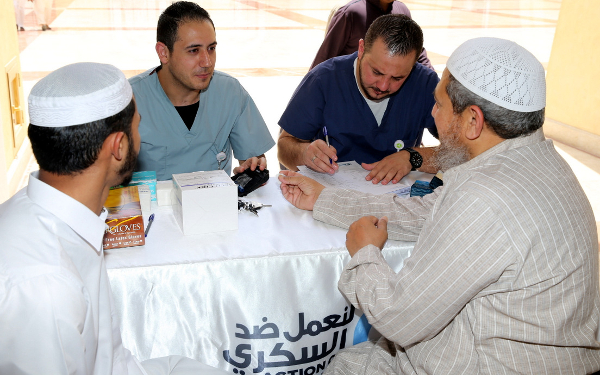This blog is also available in Spanish
Testing for diabetes can be a pain. The cheapest and most effective test requires people to fast for up to 10 hours beforehand. And if people lack any symptoms, they may also have little awareness or motivation to get tested in a timely way. The result can be higher care costs and worse patient outcomes.
We write this blog from the World Innovation Summit for Health, held in Qatar, where they tried a new way of tackling this problem at the State Grand Mosque during Ramadan. Hamad Medical Corporation and Action on Diabetes set up 20 screening stations where worshippers at Juma’s prayer, who had been fasting since sunrise nine hours previously, were invited to be tested. Almost one-third of the people screened had diabetes or pre-diabetes, without realising it. As a result, those who were found to be pre-diabetic were referred to dietary and lifestyle education programs to prevent or reverse the progression of this unpleasant disease.
This example illustrates a more general principle: people the world over are more receptive to health interventions at certain points in their day, week, cultural calendars, or at particular stages of their lives. We have collected some of these principles together in a new report, Applying Behavioral Insights: Simple Ways to Improve Health Outcomes, which was launched at the Summit this week.
The report presents examples of how behavioural insights can be used to improve people’s health around the world. The potential gains are great, particularly in the developing world. Major reductions in child mortality can be achieved through helping people carry out simple actions like attending vaccination appointments or using mosquito nets effectively.
At the same time, obesity and its associated effects are no longer confined to the West. With every 10 per cent increase in gross domestic product (GDP) in developing nations, childhood stunting falls by 6 per cent, but obesity rises by 7 per cent. Since these challenges are both behavioural and increasingly universal, we have much to gain from sharing ‘what works’ worldwide.



